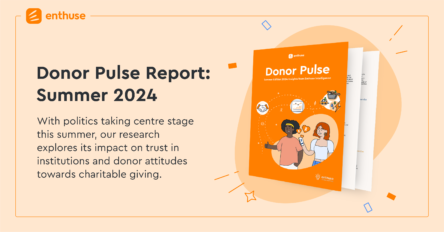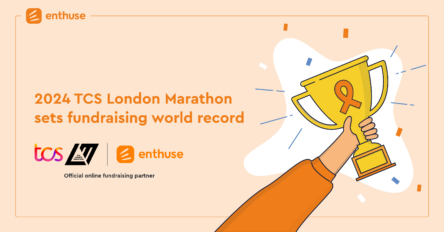
In mid-December 2017, Google announced new terms and conditions for Ad Grants that will have a dramatic effect on most charities that currently benefit from the scheme. As these new Ts and Cs are active from the 1st January 2018, at Charity Checkout we’re currently making changes to ensure compliance for those clients we assist with Ad Grants, while digesting what this means for ongoing campaign management in 2018.
Here we’ve put together summary of the changes, as well as a compliance checklist for Google Ad Grants users.
Ad Grants Overview
To rewind a little, Google Ad Grants is a system where registered charities can benefit from up to $10,000 of free pay per click advertising from Google Adwords, in order to generate more traffic to their websites from sponsored advertisements above and below the main search engine results.
Charities have been limited to some extent by a $2.00 limit for each click, meaning that their adverts would not display for highly competitive terms where standard Adwords customers were willing to bid more than that figure for a click.
On announcing the new Ad Grants terms and conditions, Google placed much emphasis on the lifting of that $2 bid limit. Here’s a copy of the email sent to Ad Grants customers:

Sounds all-good right? Not quite. The new terms and conditions include a number of important details that will require lots of work not only to avoid a vast reduction in existing spend, but also to keep accounts active.
Those details include a ban on most single-word keywords, the targeting of specific, relevant geographical areas, and the requirement of a 5% or greater click-through rate (CTR) to be maintained. While most of the changes will likely mean that certain adverts and keywords simply won’t display if non-compliant, accounts that fail to reach an average CTR of 5% for two consecutive months will be suspended.
Why the Change?
With few other restrictions in place, many Ad Grants campaigns have been generating clicks of lower relevance than Google would like. A business issue for Google may also have been that many charities were competing too much for clicks with paying Adwords customers. By forcing Ad Grants users into a stricter use of the budget, in theory, all parties should benefit – Google keeps its other Adwords customers happy while ensuring that the charities gain greater benefit from more tightly-run campaigns that bring more relevant clicks.
Many will argue though that most charities simply don’t have the resources to deal with the downsides of these changes while maximising the upsides that come in the way of being able to bid over $2 for clicks through a Maximise Conversions bidding strategy.
The worst aspect of this change is that it requires work at very short notice in order to stay compliant.
While the new Ts and Cs coming into effect from 1st January 2018 creates pressure on us to make changes, they make sense for both Google and the charities, as they place emphasis on quality and productivity over quantity of clicks.
Compliance Checklist
Below is a compliance checklist highlighting key changes needed and timescales / issues involved for meeting the new Google Ad Grants terms and conditions:
- CTR of at least 5% – many accounts will be far off this, but technically, is likely the easiest change to make. It requires culling ads / keywords with the lowest CTRs and / or better alignment of keywords with adverts.
- No generic, single-word keywords – this will greatly reduce the amount of clicks and spend for a number of accounts that target specific overseas locations, like Malawi and Ethiopia etc. The few exceptions are shown here.
- Keywords with Quality Score of two or less banned – quality score is based on the overlap between keywords, adverts and landing page content. If there are important keywords with low quality score, it’s likely that you will need to advise your website administrator to make content changes to align with those keywords, as well as ensuring that your adverts use terminology in line with those keywords.
- Specific geo-targeting to show ads in locations relevant to the charity – we will see a considerable fall in number of clicks to those charities that are generating clicks from across the world. However, with greater relevance, geo-targeting could help your CTR.
- At least two active ad groups per campaign each containing a set of closely related keywords and two active text ads – Requires work for some accounts, but many will be not far off this requirement.
- At least two sitelink ad extensions – Fairly straight forward, adding two or more additional links to more pages of your site within your campaign(s).
- Lifting the programme’s $2.00 bid cap when using Maximize Conversions bidding – while most of the above changes are designed to, and will, restrict and reduce clicks and spend, this change will enable increased spend by allowing you to compete for more phrases that were previously more commercial and too expensive. Time-consuming, but there is not a hard deadline for this – it is the loosening of rules that in the long term can balance out the restrictive nature of the other changes above.
In Summary
This is a major change from Google that will require much work to bring accounts in line with the updated terms.
Not many of these changes involve a hard deadline of 1st Jan 2018 – some keywords will become disallowed if left as they are, but as long as campaigns have the sitelinks and correct number of ad groups and adverts in each campaign, the hardest deadline is then end of February for achieving the 5% account CTR across that month and moving forward from there.
The changes do require a fundamental change of approach to managing the campaigns, with greater focus on relevance and conversions as opposed to just spend.
For Charity Checkout clients that receive or would like to receive help with managing their Ad Grants accounts, we will be announcing 1 revised tier of service to reflect these new terms and conditions:
- Adgrants – Plus will involve the setup and management of accounts to stay compliant with the new Ts and Cs in order to remain active and productive. Plus will also involve working very closely with the client on the Maximise Conversions bidding strategy to benefit from bids above $2. This enhanced service will involve greater dialogue and focus on positive actions of visitors once on your website, rather than just generating the clicks to your website.
We will be releasing further details about this new package shortly via the AdGrants product page on our website.
In the short term, many charities will see reduced spend following the new Google Ad Grants terms and conditions, but in the medium / long term they can recover and even increase it, provided they put the necessary work into relevance and conversion tracking, which will add value to the campaigns. While there is much dismay across blogs and social media, we think the changes do make sense for both Google and charities in the long term.









